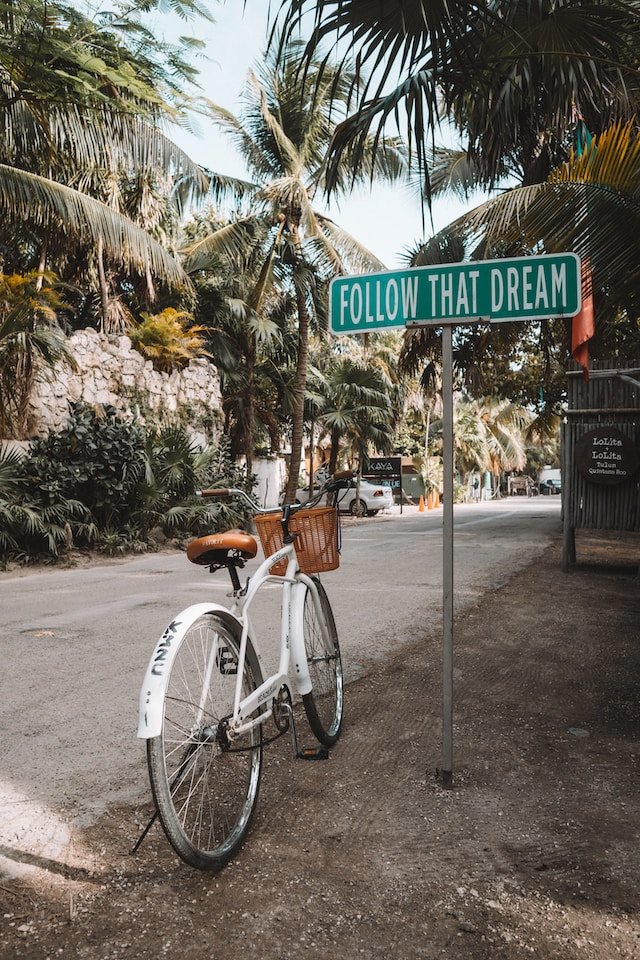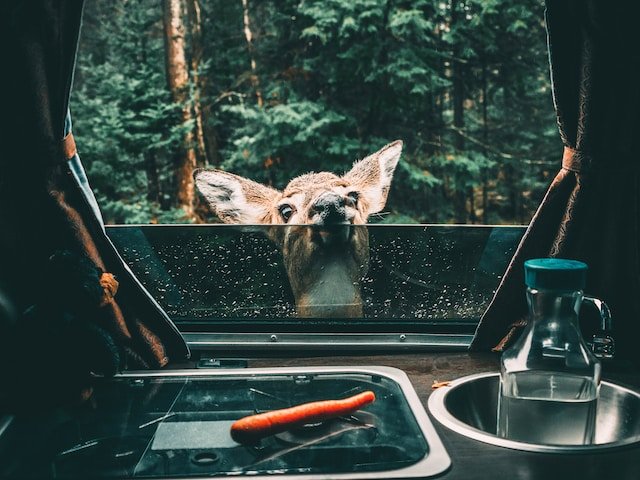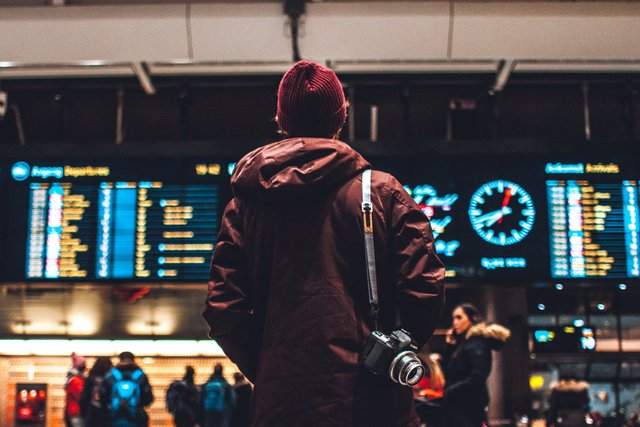
Living off the grid is a growing trend for people seeking to simplify their lives and reduce their environmental impact. But what happens when you ditch city life for an off-grid lifestyle? The answer may surprise you. Off-grid living requires a significant shift in mindset and daily habits, but the rewards can be immense. From self-sufficiency and sustainability to increased mental and emotional well-being, many find that living off the grid allows for a deeper connection with nature and a more meaningful way of life. In this article, we'll explore the challenges and rewards of next gen nomadic living and provide insights for those considering making the leap.
The decision to leave the city behind
Living in the city can be exciting, but it's not for everyone. Some people long for a simpler and more sustainable way of life. The decision to leave the city behind can be difficult, but it often comes from a deep desire to reconnect with nature and live in harmony with the environment.
The impact of city living on mental and physical health
Research has shown that city living can have a negative impact on our mental and physical health. Being constantly exposed to noise, pollution, and stress can lead to anxiety, depression, and other chronic health problems. This is one of the reasons why more and more people are choosing to leave the city behind and pursue a next gen nomadic life.
The challenges and rewards of Nomadic Living
Living off-grid comes with its own set of challenges and rewards. It can be a big adjustment to go from a modern, connected and convenience oriented lifestyle to a more self-sufficient and sustainable one.
Embracing a simpler way of life
Off-grid living requires a simpler way of life. You'll need to learn how to live without some of the modern amenities. This can be challenging at first, but many people find that they enjoy the simplicity and back-to-nature feeling of making some sacrifices.
Learning new skills and ways of self-sufficiency
Next gen nomading requires a certain level of self-sufficiency. You'll need to learn new skills such as gardening, cooking from scratch, and alternative energy systems. At first, there is a learning curve and mundane tasks become work, but many find that learning these skills are rewarding and empowering.
The rewards of living in connection to nature
One of the biggest rewards of down-sizing is the ability to live in connection with the outdoors. Cleaner air, more natural stimulation, and recalibrating one's reality to the environment can be nurturing as well as validating. Especially, if you find yourself emotionally exhausted keeping up with a city life routine.
Creating a sustainable and self-sufficient lifestyle
New nomading requires a mindset adjustment. Depending on whether you are traveling with family, friends or pets. The simple things like getting food or entertainment require a little more preparation and weather considerations.
The importance of planning and preparation
Because the world has changed in response to technology, there is a spectrum involved in nomading. Off grid can mean a tiny house on a large property, an RV, or more rugged living with tents and the like. When deciding what version of off grid living will suit your purposes best, you may want to do some soul-searching and research before taking the next step.
The key is getting a feel for what attachments you can and cannot do without. Many who still need to earn an income want internet and modern plumbing handy at all times.
While others prefer to position themselves in areas that are warm and Bohemian year round. Which makes living in an RV or boat sensible as well as sustainable.

Building and maintaining your nomadic style
Self-sufficiency when it comes to necessities such as water, electricity, and temperature means learning how to build, maintain, and repair as many things in your dwelling as possible. Compromise is part of the new negotiation.
Living off the land? Growing your own food, hunting, or fishing?
One of the main choices of off-grid living is to become more independent and self-aware. With this in mind, very portable gardening kits to grow your own vegetables and some fruits as well as compact fishing kits can make organic eating affordable and fun. The rules on hunting smaller game are usually lax in most areas, but it is recommended that some research be conducted before you make a habit of it. Potable water at all times should be the most basic daily or weekly activity, and keeping a bag of rice handy for all occasions is highly encouraged.
Navigating the lack of modern amenities
Off-grid living means giving up some of the modern amenities we've come to rely on. This can be a big adjustment, but there are creative solutions to help you navigate the challenges of living with limited electricity, running water, or constant internet access.
Creative solutions for alternative energy and water sources
Some alternative solutions for energy, water or connection. Many people use solar panels or portable generators for electricity, and collect rainwater or invest in a water purification solution that meets an urgent need. Satellite trackers look like toy walkie-talkies, but they are solar-powered and allow your location to be known or discoverable anytime, anyplace, anywhere for added safety and security.
The impact of minimalist living on material possessions and waste
Embracing a minimalist lifestyle requires constant maintenance. The longer you stay somewhere, the more you will collect. Learning to live with less and make do with what you have is an ongoing effort to make your living space as comfortable and mobile as possible.
Some are motivated to live green and find that living off-grid helps them reduce their environmental footprint and develop a greater appreciation for the things they have.
The impact of community and connection
Becoming a nomad doesn't mean living alone. In fact, building a supportive community of neighbors is crucial for a successful off-grid lifestyle. Cultivating meaningful relationships in isolated areas can be challenging, but it's worth the effort. Having a network of like-minded individuals to share resources, knowledge, and experiences with can provide a sense of belonging and security that is hard to find in the city. With fewer distractions and more time to connect, off-gridders often find that their relationships with others are more genuine and fulfilling than before.

Combating loneliness
Living off the grid can be a lonely experience if you do not take the time and effort to connect with your surroundings. This means easing into isolation, having pets and plants, and keeping books and music in your life for intelligent stimulation are as important to mental health as reducing toxic over-stimulation.
Build a supportive community where you are.
Although living as a new nomad has some trendy appeal, it really isn't all that new. Time on your own will allow you to learn new things and develop new life skills for a fresh life perspective none-the-less.
Some people even turn to working part-time on farms or making crafts to resell as part of their journey process. The goal is to find a healthier, happier version of yourself and feel more connected to the life you are living so that you can participate and share with others.
Many feel the digital nomad community grows a sense of belonging, as well as a source of insight, skills, and shared resources.
Whether it's sharing supplies or making big trips to local markets or even survival hacks, socializing as a nomad is definitely more meaningful.
The mental and emotional benefits of off-grid lifestyles
New freedoms provide a sense of possibility and adventure that is hard to find in the city. The slower pace around you usually means you have more to do every day, and moving is as simple as turning the engine over or jumping on your bicycle.
It may sound like you get to be less responsible, but the truth is more freedom is more responsibility and less control, which is mainly why it's not right for everyone.
The opportunity to disconnect from the chaos of the modern world
Disconnecting from the fast-paced, consumer-driven world by living more simply and intentionally, you can reduce your environmental footprint and avoid the constant pressure to keep up with the latest dramas or problems. This freedom can provide a sense of peace and contentment that is hard to find in the city.
The best part is, it can be as temporary or as permanent as you need it to be.
What you will gain:
*The unexpected lessons and personal growth.
*Overcoming challenges and learning from failure.
*The impact of solitude and self-reflection on personal growth.
*Increasing self-reliance and confidence in personal ability.
*Memories that will last a lifetime.
Is off-grid living right for you? Factors to consider ahead of the decision:
*Personal priorities and values
*Financial and time commitments
*The impact on family and relationships
Many individuals gradually transition into a nomadic lifestyle with “mini” full immersion trips. This often involves acquiring a boat, RV, or van and creating a list of preferred destinations to escape to. Over time, they extend their stays at these locations, gradually adapting to their new way of life. To achieve their desired living arrangement, they work diligently to save up or explore alternative sources of income.
FAQ
Is off-grid living more expensive than living in the city?
Living off the grid can require a significant initial investment in building and maintaining your lifestyle requirements. But it becomes cost-effective quickly.
Enjoy some cost saving opportunities like RVs, vans, camping equipment, and gardening supplies here.
Can I still have modern amenities like internet and hot water while living as a new nomad?
Yes, it is possible but, you may have to plan for certain things like stable Wi-Fi.
Is off-grid living safe?
It comes with its own unique safety concerns, such as extreme weather conditions, wild animals, or bad actors (occasionally) but arguably you have less to lose than your city counterparts.
Thank you for reading, please comment, share, follow.